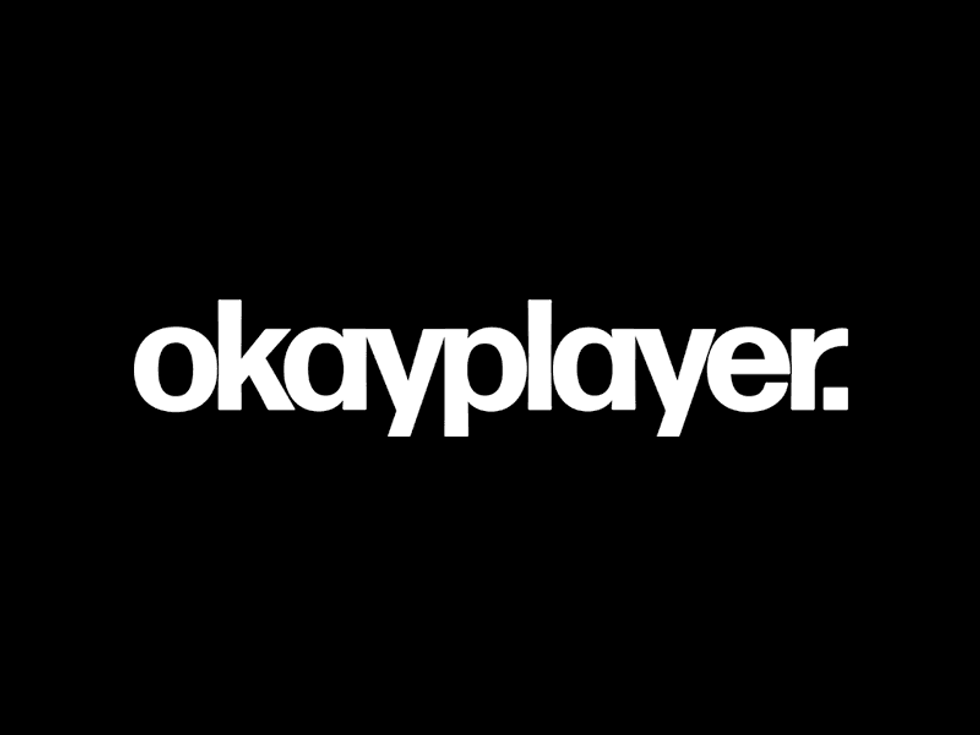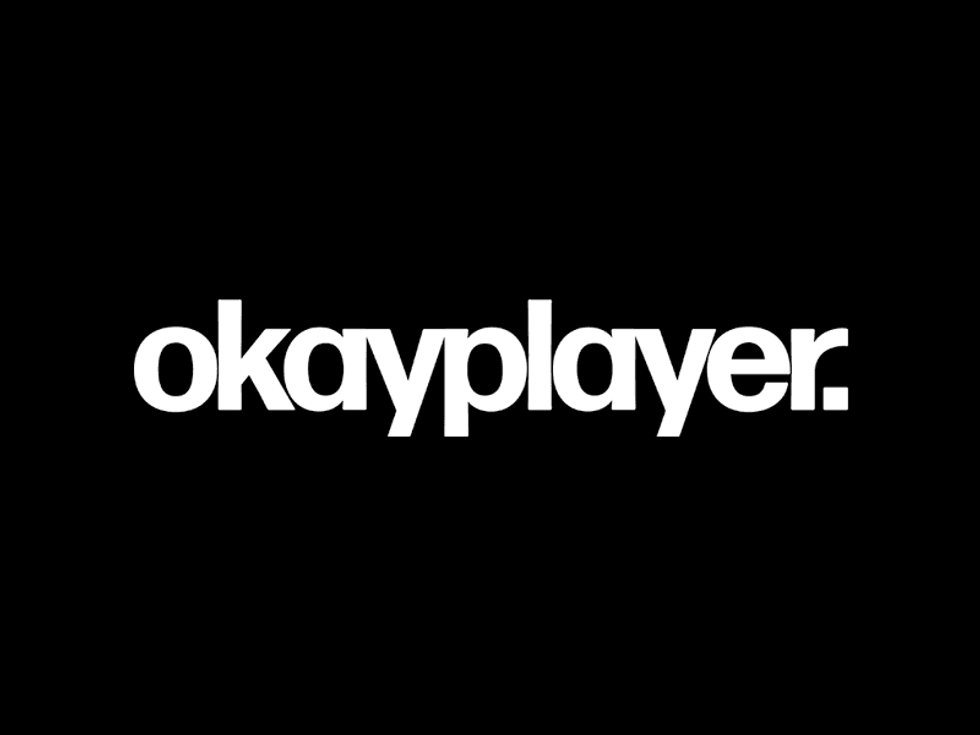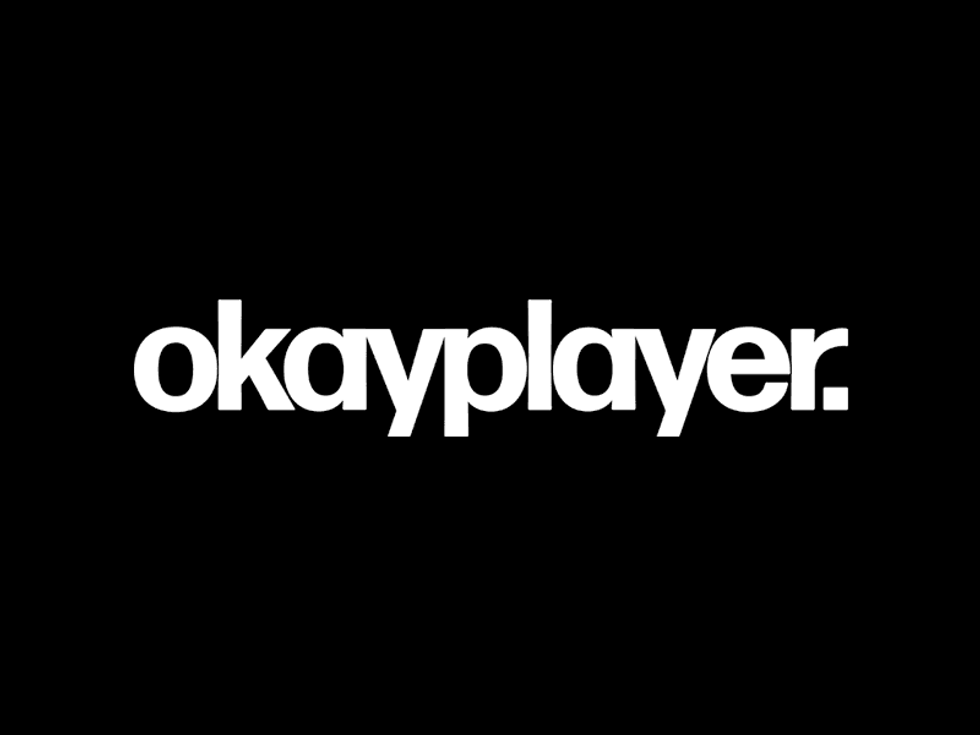![Dana Murray’s Negro Manifesto: On Injustice, Calling Out Uncle Toms & Hope [Interview]](https://www.okayplayer.com/media-library/dana-murrays-negro-manifesto-on-injustice-calling-out-uncle-toms-hope-interview.png?id=33182261&width=1200&height=800&quality=90&coordinates=0%2C33%2C0%2C34)
Dana Murray’s Negro Manifesto: On Injustice, Calling Out Uncle Toms & Hope [Interview]
Source: Dana Murray
To continue reading
Create a free account or sign in to unlock more free articles.
By continuing, you agree to the Terms of Service and acknowledge our Privacy Policy
Register
The content is free, but you must be subscribed to Okayplayer to continue reading.
THANK YOU FOR SUBSCRIBING
Join our newsletter family to stay tapped into the latest in Hip Hop culture!
Login
To continue reading login to your account.
Forgot your password?
Please enter the email address you use for your account so we can send you a link to reset your password:
![Dana Murray’s Negro Manifesto: On Injustice, Calling Out Uncle Toms & Hope [Interview]](https://www.okayplayer.com/media-library/dana-murrays-negro-manifesto-on-injustice-calling-out-uncle-toms-hope-interview.png?id=33182261&width=1200&height=800&quality=90&coordinates=0%2C33%2C0%2C34)

Echoing socially conscious artists like Gil-Scott Heron and hip-hop activists The Goats, Negro Manifesto (Ropeadope), the new project by drummer, producer and educator Dana Murray, contemplates the roots of injustice and the current state of our world through sound. Far from a typical drummer's record showcasing talent and skill, the album epitomizes the idea that music can actually serve a social and political purpose.
Murray, a native, of Omaha, Nebraska, knew he was destined to be a drummer from a young age. Initially gigging anywhere and everywhere he could, Murray attended Boston’s Berklee College of Music on scholarship; he then headed to New York City, immersing himself in the jazz scene, and playing with luminaries such as Donald Byrd and Roy Hargrove. Not limiting himself to jazz, though, he has also played in several Broadway shows (including the rock opera Tommy) and performed with Atlantic Records’ trip-hop band WaxPoetic. As a producer, he has worked with a variety of labels including Blue Note, collaborated both with heavyweights and up-and-coming artists, and held various teaching positions. Murray is also the founder of Dojo Percussion, aiming “to reach the masses through the power of music and percussive art.”
This new album, Negro Manifesto, blends jazz, hip-hop, blues, spoken word, electronica and even country music, features stellar musicianship by a cast of jazz luminaries including saxophonist JD Allen, bassist Eric Revis, pianist Orrin Evans, drummer Nasheet Waits, and artists from a range of genres. Murray’s intention is to inform, challenge and engage us, fostering dialogue on social justice, race, gender and community, helping us learn and heal.
Okayplayer caught up with Murray in Montreal following the last night of his 12-date album release tour, where his band joined the 25th anniversary celebration of Kalmunity (the largest improv collective in Canada). What Murray offers here is more than a narrative, a testimonial or a hopeful hymn. Musically engaging, it is a thoughtful, profound and poignant call for engaged discourse, with an underlying message of hope and love.
Take a close look.
Okayplayer: What was the impetus for this album?
Dana Murray: The times we live in motivated me to speak up on things that are unfair, that need to evolve. It’s not really my personality to come out and talk about stuff that’s polarizing; the world is already so polarizing… But I wouldn’t be responsible if I didn’t speak up. These conversations are hard, usually putting someone on the defense. The idea was to have constructive conversation without doing that.
OKP: What is the source material of the album’s intro?
DM: This, along with recurring snippets, were taken from a 1964 album entitled Adventures in Negro History. This was one of the biggest motivating factors behind my album.
OKP: The recording’s centerpiece is the three-part “Suite Kaepernick” which we’re premiering here. What can you tell us about the song’s title?
DM: In calling it “Suite Kaepernick” I’m referring to the act of kneeling to protest violence against unarmed blacks in America. I have a problem with someone telling someone else that they can’t speak up for what they perceive as injustice. Imagine a world where no one ever spoke up against injustices; where would this country be if no one spoke up against the injustices of slavery? We’d probably still be enslaved. It always gets tricky when you talk about patriotism in America. No one can paint what my patriotism should be as a black man in America.
Segregation was still happening in 1964; how am I supposed to feel the same patriotism as someone white, considering my ability to share in this country’s fruits and glories? Should an American Indian feel the same patriotism as someone white? Who can paint a picture of what patriotism should be for them? America is guilty of that. I prefer to feel patriotism for what this country has allowed me to do for myself. It’s different for everyone. This country is too young to paint anything for anyone. It just comes off as hypocritical.
(Ed. Note: Since this interview, the NFL has required players to stand during the anthem, Trump praising owners for doing the "right thing," suggesting that those who don't stand maybe “shouldn't be in the country.”)
OKP: The first movement opens with the third verse of “Star Spangled Banner” — what is the significance of this text for you?
DM: Usually we only hear the first verse, so it’s surprising to some people to hear these words against the music. This starts a conversation. The lyrics of this verse are “No refuge could save the hireling and slave / From the terror of flight or the gloom of the grave.” The poem was written by Francis Scott Key in 1814; the amendment abolishing slavery was ratified in 1865. So when he says “And the star-spangled banner in triumph doth wave / O’er the land of the free and the home of the brave,” he wasn’t talking about black people. I take exception to that. There are many things that are historic, and are just the way we do things here in America — we call it nostalgia, or American history; but a lot of this stuff is not rooted in the energy that most people perceive of now. That’s why it’s’ so surprising to people when they hear my version — which is not really my version; it’s the actual poem.
OKP: The second movement features words written and performed by Omaha singer-songwriter CJ Mills. The lyrics end with:
"Murder on tv, justice on the loose
If MLK could run it back he’d keep a piece up in his suit
You want us to take the high road,
But that ain’t what you do
I’ve been meaning to find meaning in these bad dreams,
Then I realize
It’s a machine"
What’s your take on these lyrics?
DM:MLK was all about non-violence, turning the other cheek; at the same time, Malcolm X was about hitting them twice as hard, hitting them before they hit you… The sentiment was the same, but the path to justice was a lot different. I think what this says is “I stood for freedom, I tried to do things the right way, and at the end of the day, they still killed me. . .” I think MLK knew the path he was taking, and knew that was a possibility; going back, I think he would change a lot of things. Maybe not the sentiment of his message, maybe not responses to some of the hate, but he’d definitely be more on guard about what the possible outcome could be. That was very powerful for me.

OKP: The final line leads us into the third movement, entitled “Welcome to the Machine,” with lyrics by Roger Waters of Pink Floyd. What is “the machine”?
DM: The machine represents humanity. How has that played out in American history? It’s easy to get caught up in the black/white dynamic: I’m black, they’re white; they have more privileges than I do; historically I’ve always had the short end of the straw; this country has benefited from the work of my ancestors. All this is very true. What I was trying to convey is that there is a flaw in humanity. If it weren’t for black people, Europeans would have taken advantage of someone.
At that time, it was easier to enslave blacks. And it was not only free labor, but better labor. They exploited that. The point is, Humanity will always exploit something. It’s just human nature. Once people on both sides can understand that, get past the deep-rooted divide between cultures, we can start finding common ground, truly heal, and get to a more evolved state. But for many people it’s hard to get past the hate, violence and disenfranchisement that still happens every day, right in front of them.
OKP: The hypnotic “The System” includes a poem written by spoken word artist Prentice Powell, quoted here:
“We live in a system that is designed for us to fail. No matter how wonderful or great you think you are, there is no you, there is only who I want you to be.
You Negroes — error — you people are programmed not to ask. You are nothing more than empty vessels who sold their souls a long time ago. And you call me robotic? I am the system. Systematically set to just do. You are systematically set to just do and not think. And you call me robotic?”
How did the lyrics and music come together?
DM: The music came first; then I came across that spoken word piece and wanted to meld the two together. I took something JD had played in a session and pieced it into an intro; then I laid a bass line on top of it, drums and random synth, and made a groove pallet that I thought said what I wanted to say. It’s concise. I’d lay drums across 32 or 64 bars, and then piece everything to that drum track. There’s a feel you wouldn’t get if it were all programmed. That’s what I was trying to do: create a solid groove that was also free.
OKP: “Comfortable Discomfort” actually conveys discomfort through the music, JD Allen’s horn wailing against your relentless drums, percussion and synth, and Andrew Bailie’s shredding guitar. It features a Malcolm X speech discussing the concept of “the house Negro and the field Negro.” What are its contemporary implications for you?
DM: What I was trying to say is, if you look at Uncle Tom — there is a history of that subservient black person who looks for the best in everyone, regardless of how he’s treated, always seemingly willing to do what he can to position himself for the white man, because he is the one who can allow the black man to prosper. That’s the frame of mind: “If I act like this, I’ll be in favor with the white man, and that’s how I’ll get ahead.” A lot of the stuff Malcolm X says here is still true today.
OKP: So, who are the house negroes of today?
DM: I find Ben Carson to be one. Paris Dennard [CNN commentator] — wow, dude, who are you? What is your motivation? Who do you think you’re representing? He is the modern Uncle Tom. He is lost. If people are scared to say exactly what they think because they’re going to cause some discomfort, we won’t have any growth.
OKP: The haunting “Temptation” incorporates dialogue from the 1975 movie Mandingo. What is the significance of this dialogue for you now, today?
DM:Mandingo is one of my earliest memories of something that really shook me up as far as the impacts of slavery, one race having control over another race. I was probably seven or eight when I first saw it and it messed up my mind for a long time. Slavery has been put away as something that happened a million years ago, but when you get older you realize it wasn’t that long ago.
OKP: Your musical and lyrical influences seem to be very eclectic, from Chris Cornell (“Dead Wishes”) to “Ballad of Lies,” inspired by Michael Bolton’s “Said I Loved You...But I Lied,” and there’s Tammy Wynette’s “Stand by Your Man” …

DM: “Dead Wishes” had a dual purpose: One, I love Chris Cornell; it was a tribute to how much he influenced me musically. The song was also a statement: if all of the old, hateful thoughts from the past continue — thoughts that our history is rooted in, that were meant to leverage one against the other, or disenfranchise — there is no hope. As for “Ballad of Lies,” when I was thinking of how many lies Donald Trump says every time he talks, it seemed very fitting to put that Michael Bolton hook in there. "Stand By Your Man" is a tender country song that would put a person instantly in an Americana frame of mind — everything that is good, clean and just; but then you have JD in a completely different key. It’s a support role, but not really; it’s the natural counterpoint in relationships.
OKP: This country classic really does get a very unorthodox treatment here, and I noticed you added the subtitle “Lady Liberty.”
DM: The statue of liberty stands for freedom, justice, everything America would like to stand for. If she could actually speak, she would share a lot of the sentiment in that song. She’d love to stand by the ideals that were laid down for the country to follow, if only the people would stand by that.
OKP: What can you tell us about this “Paper Bag” persona we see in the video, who I also witnessed on stage? And the megaphone he holds?
DM: [Laughs] I don’t have a name for this person. I call him “Mr. No Name,” because he represents those who are faceless, and yet persecuted, and who have no voice. He has no face; he is that which is overlooked, and seems to be of no consequence. Yet he has eyes — sees everything, but has no mouth. Doesn’t really have a voice. The megaphone represents this person wanting to let everyone hear how s/he’s feeling, but not having a voice.
It also represents black America, thought of as loud and boisterous. Why is that? To be heard, you often subconsciously feel like you need to shout things, be more demonstrative in expressing yourself, in order to be heard. Some people try to shut up those who are speaking against things they don’t think are just — whether it’s politicians saying that LeBron James should just “shut up and dribble,” or that a musician having something to say should just be quiet.
OKP: When you speak of social engagement, and the importance of open discussion, I see you’re actually doing this beyond the music; you recently held a panel-style discussion at the University of New Haven’s School of Music. Can you tell us about that interaction?
DM: One of the highlights came from a dialogue between two very intelligent and conscious students, one black and one white. I asked them about things they’ve experience on campus – discrimination, bigotry, anything that was unfair in their eyes. They young black student spoke, and then the white student said “I’m sorry that you felt that way; I can see how that can easily happen.” He started by empathizing with her position. Then he went on to say, “I can also see how I could have perceived it differently as a white person,” how his actions could be taken the wrong way. He felt like he can’t do anything to be perceived by black people the right way. It was about empathizing with each other’s position; if you can do that, you can find common ground in any situation. The fact that we could see that happen let me know that I’m on the right track, that the message I’m trying to convey is the right one. These young people hold the key to this next step of evolution in America. It’s really on them.
OKP: Tell us about “Alice Mae (Hope)” — the tender, bluesy piece closing the album, with vocals by Elizabeth Kantumanou and Caron Wheeler.
DM: My grandmother was instrumental in raising me. Most of my convictions and moral foundation came directly from her. She was an outstanding woman who shaped the very core of who I am. She loved everyone, didn’t take any shit from anyone, but accepted any person on the strength of their character — whoever came with an open heart and was a good person. I wanted to end the album like that, because even though I think humanity is flawed, I have to have hope. Once I go to a dark place or think too pessimistically, I think of my grandmother, and that instantly snaps me into a frame of mind of having hope. I had to end it on hope. Regardless of everything, we can still evolve to a better place.
Listen to Negro Manifesto below:
--
Sharonne Cohen is a Montreal-based writer whose work has appeared in DownBeat, JazzTimes and Afropop Worldwide. You can find her work here.